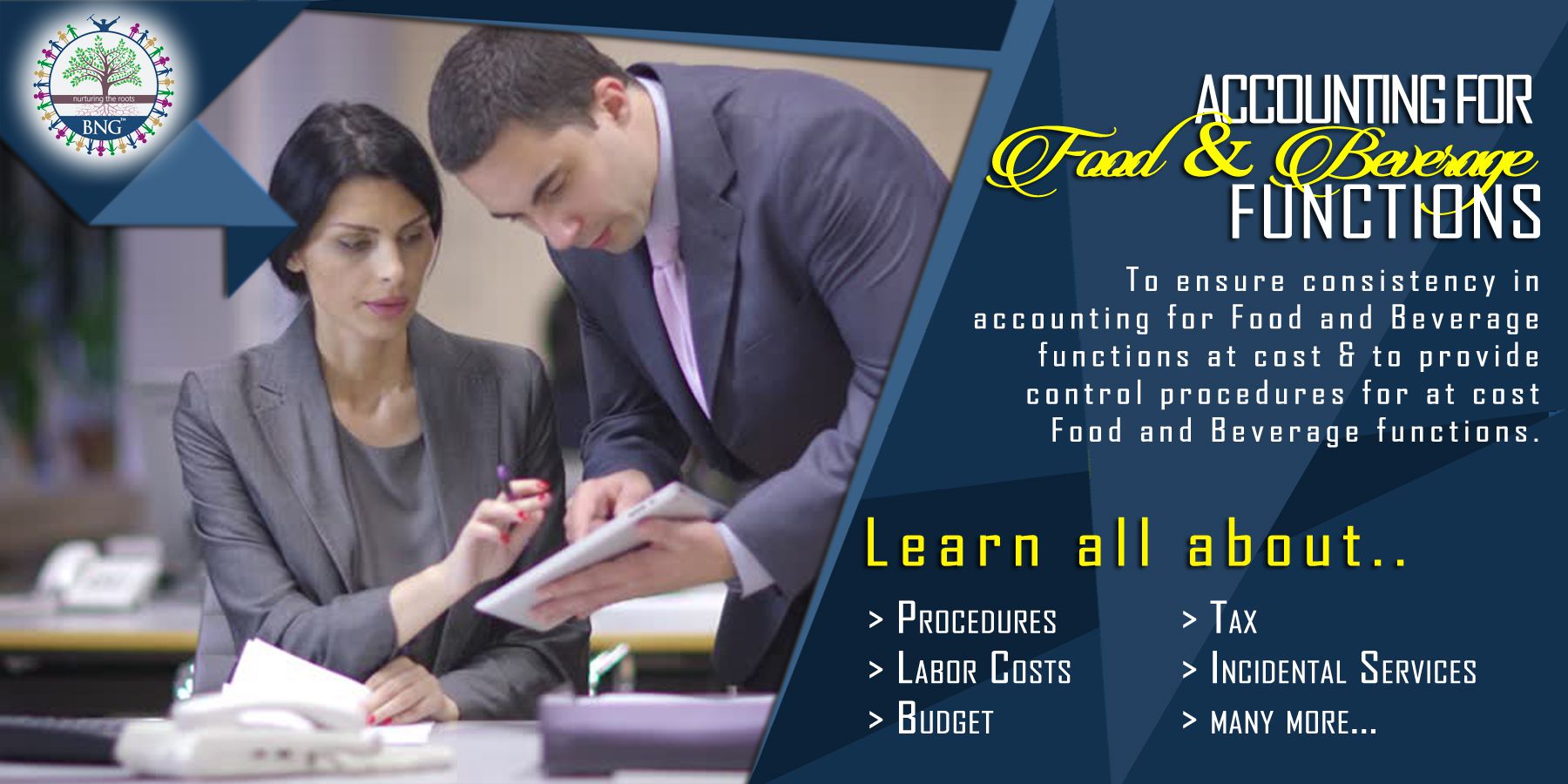
Accounting for F&B Functions
Accounting for Food and Beverage functions
To ensure consistency in accounting for Food and Beverage functions at cost. To provide control procedures for at cost Food and Beverage functions.To ensure an accurate accounting of expenses for those hotel functions that benefit the business requirements of a particular hotel department. All in-house, company-approved/sponsored Food and Beverage functions will be handled in accordance procedures as outlined in this policy.
At-cost Food and Beverage functions can be requested by the following individuals:
1. Hotel Executive Committee Member (Requires General Managers Approval)
2. Corporate Officers
3. All requests for at-cost Food and Beverage functions must be made through the General Manager. The General Manager will determine if the hotel can accept the at-cost function based on business levels, demand, impact on revenues and profitability, etc.

Accounting for Food and Beverage functions PROCEDURE:
4. Charges for at-cost functions will be based on the following:
a. Actual cost of raw product.
b. Actual non-fixed labor costs, i.e. hourly. Costs for payroll taxes and benefits will not be included. They are to be absorbed by the applicable department.
c. Actual costs for incidental services (A.V. rental, flowers, etc.). Normally, these costs are at full retail as these services are provided by outside vendors. (Unless a discount arrangement can be worked out.)
d. Service charges should be based on the retail value of the function times the percentage currently distributed to the banquet service employees. Do not include any portion of management-distributed or
house-retained service charge.
e. Sales and use tax should be based on the retail value of the function times the applicable percentage for your state and/or locality.
5. An estimated budget for the at-cost function must be approved in advance, in writing, by the individual requesting the function and the General Manager.
6. After the function, itemized costs must be submitted to the Accounting Department with a copy to the Director of Food and Beverage and the individual requesting the function.
7. Final cost totals for all at-cost functions must be approved, in writing, by the individual requesting the function, the Director of Food and Beverage and the General Manager.
8. At-cost functions should never be included in departmental revenues, as they will significantly distort cost percentages. All product and related labor costs should be treated as credits to the cost area and department in which they originated.
9. Examples of at cost functions are:
10. Functions sponsored by the hotel for public relations purposes.
11. In-house functions such as departmental meetings, going away parties, holiday parties, employee recognition functions, etc.
12. V.I.P. gifts to important or prospective clients in-house.
Under normal circumstances, functions in restaurants should not be included in the “at-cost” functions definition; as such activity would displace other “for- profit” business. These functions should be charged full “retail”, and posted as revenue and charged to the appropriate department.




